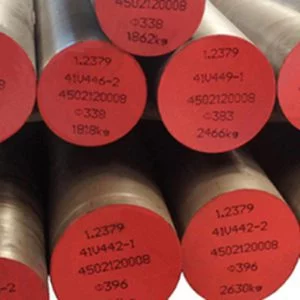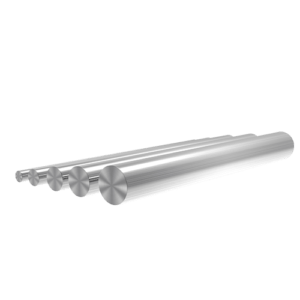Introduction

In the realm of modern manufacturing, the significance of materials cannot be overstated. Among the plethora of options available, D2 tool steel stands out as a versatile and reliable choice. This blog aims to delve into the multifaceted nature of D2 tool steel, exploring its applications, properties, and advantages in various manufacturing processes.
Understanding D2 Tool Steel
D2 tool steel, a high-carbon, high-chromium cold-work steel, boasts exceptional wear resistance, toughness, and dimensional stability. Its composition, comprising carbon, chromium, molybdenum, vanadium, and other elements, endows it with unique properties ideal for a myriad of manufacturing applications.
Applications Across Industries
D2 steel’s versatility extends across a broad spectrum of industries, where its exceptional properties cater to various demanding applications.
Automotive Industry
In the automotive sector, D2 steel plays a crucial role in manufacturing precision components such as gears, cams, and cutting tools for machining engine parts. Its high wear resistance ensures longevity in the face of continuous friction and high-stress conditions, contributing to the efficiency and reliability of automotive systems.
Aerospace Sector
The aerospace industry relies on D2 steel for fabricating critical components like turbine blades, aircraft structural parts, and precision instruments. Its ability to maintain sharpness and dimensional stability even at elevated temperatures makes it an ideal choice for machining alloys and composites used in aerospace engineering.
Toolmaking
Toolmaking industries benefit significantly from D2 steel’s robustness and durability. From forging dies and extrusion tools to blanking and forming dies, D2 steel withstands the rigors of repeated mechanical stress and abrasive wear, ensuring prolonged tool life and consistent performance.
Mold Making
In mold making for plastic injection molding and die casting, D2 tool steel’s superior hardness and wear resistance make it a preferred material for manufacturing core and cavity inserts. Its excellent machinability allows for intricate mold designs, while its resistance to deformation and thermal fatigue ensures precise and repeatable molding processes.
General Manufacturing
Beyond these specific industries, D2 steel finds applications in various general manufacturing processes. From shearing and stamping operations to cold heading and thread rolling, its versatility and reliability make it a go-to material for a wide range of cutting, forming, and shaping tasks.
In essence, the widespread adoption of D2 steel across automotive, aerospace, toolmaking, mold making, and general manufacturing industries underscores its indispensable role in modern production processes. Its ability to withstand high-stress environments, maintain sharpness, and deliver consistent performance makes it a cornerstone material for meeting the exacting demands of contemporary manufacturing applications.
Advantages in Manufacturing
- Machinability: D2 tool steel’s machinability facilitates intricate designs and precise machining, enhancing manufacturing efficiency.
- Heat Treatment: The versatility in heat treatment allows for customization of mechanical properties, catering to specific application requirements.
- Cost-Effectiveness: Despite its premium quality, D2 tool steel offers a cost-effective solution due to its extended service life and reduced downtime.
- Corrosion Resistance: Chromium content imparts corrosion resistance, ensuring longevity and reliability in harsh environments.
Properties and Performance

| Property | Description |
|---|---|
| Hardness | D2 tool steel exhibits high hardness, making it suitable for cutting and machining. |
| Wear Resistance | Exceptional wear resistance ensures prolonged tool life and reduced maintenance costs. |
| Toughness | Despite its high hardness, D2 tool steel maintains good toughness for various applications. |
| Dimensional Stability | Minimal distortion during heat treatment contributes to dimensional accuracy in finished products. |
FAQ
Q: What are the primary differences between D2 tool steel and other tool steels?
A: D2 tool steel distinguishes itself with its high carbon and chromium content, providing superior wear resistance and toughness compared to many other tool steels.
Q: Can D2 steel be welded?
A: While D2 steel is technically weldable, it requires preheating and post-weld heat treatment to mitigate potential issues like cracking and brittleness.
Q: How does D2 tool steel compare to other materials like carbide?
A: D2 tool steel offers a balance between hardness, toughness, and cost-effectiveness, making it a preferred choice for certain applications where carbide may be overly brittle or expensive.
Conclusion
In conclusion, the versatility of D2 tool steel in modern manufacturing is undeniable. Its exceptional properties, coupled with a wide range of applications and cost-effectiveness, make it a cornerstone material in various industries. Understanding and harnessing the potential of D2 tool steel can lead to enhanced productivity, reliability, and overall quality in manufacturing processes. Whether it’s precision cutting tools or intricate dies, D2 tool steel continues to prove its mettle as a go-to material for the demands of the contemporary manufacturing landscape.
